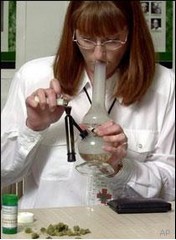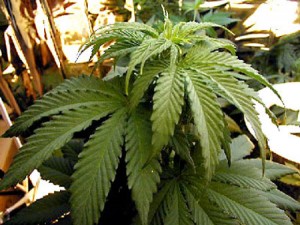Marijuana may be legal in parts of the United states, but that doesn’t mean everyone has the same rights to toke. Kids, for example, must wait until they’re older.
 But there’s another group of people whose right to use even legal cannabis is tenuous, at best. Doctors, lawyers, and other professionals operate under legal and ethical rules that often make it difficult to use.
But there’s another group of people whose right to use even legal cannabis is tenuous, at best. Doctors, lawyers, and other professionals operate under legal and ethical rules that often make it difficult to use.
So can these licensed professionals ever light up legally without endangering their licenses? As usual, the answer depends, but one thing is certain: The risk often outweighs the reward, especially for medical professionals.
First, let’s review. Cannabis is currently legal in Colorado, Oregon, Washington, and Alaska, as well as the District of Columbia. It’s already on sale in stores in Colorado and Washington State, and should soon be available on the retail market in Oregon, Alaska, and D.C.
The laws in those places allow (or soon will allow) all adults to buy, possess, and use marijuana on private property. That includes anyone over the age of 21. Doctors, dentists, lawyers: They’re all allowed to walk into a neighborhood store and buy small amounts of cannabis for personal use.
Licensed professionals subject to disciplinary board action
But that law is hardly the end of the question. Licensed professionals also answer to their respective disciplinary boards. These panels are composed of colleagues, bureaucrats, and outsiders, and they decide whether professionals should be punished for infractions of the profession’s code of conduct.
Doctors are under especially close attention. Violating confidentiality. Writing excessive prescriptions. Sleeping with patients. All these things can lead medical boards to institute fines, restrict medical privileges, or even permanently revoke licenses.
Drug abuse among most common reasons for sanctions
Drug abuse is one of the leading reasons for medical sanctions. Evidence that a doctor is drinking on the job or using any illicit drug could lead to mandatory rehab and a suspended license. A California neurosurgeon was recently accused by the state medical board of smoking marijuana constantly, even between surgeries.
But what about doctors who only use at home? There things get trickier. In 2012 Colorado medical authorities decreed that any doctor using medical marijuana to treat a chronic condition must stop treating patients until the medicinal cannabis is no longer needed.
The rules are less clear on recreational cannabis. But it’s safe to say most if not all states, including those with legalization, prohibit physicians from consuming marijuana in almost all circumstances, on or off call.
How does cannabis affect medical competence?
 Sadly, there isn’t much data to determine exactly how cannabis affects medical competence. The drug can interfere with certain cognitive functions and can sometimes cause tremors, among other potential problems for a practicing physician.
Sadly, there isn’t much data to determine exactly how cannabis affects medical competence. The drug can interfere with certain cognitive functions and can sometimes cause tremors, among other potential problems for a practicing physician.
The best advice for most doctors in most places is simple: Either stay away from marijuana or keep your use as low-key as possible. Drug tests are always possible once a disciplinary proceeding is underway, so it’s best to assume you’re always in danger of discovery.
The situation is easier for lawyers. Of course, attorneys are barred from using cannabis wherever it’s illegal under state law. But the rules get hazier when federal law comes into play. Marijuana is illegal for any use under federal anti-drug statutes.
In Colorado, at least, lawyers are clear to use cannabis anyway. They are also free to represent clients who trade in cannabis, regardless of the federal laws that ban it. Of course, any allegation that an attorney is using on the job would open the door to serious penalties.
Can Doctors and Lawyers Toke?
No comments:
Post a Comment